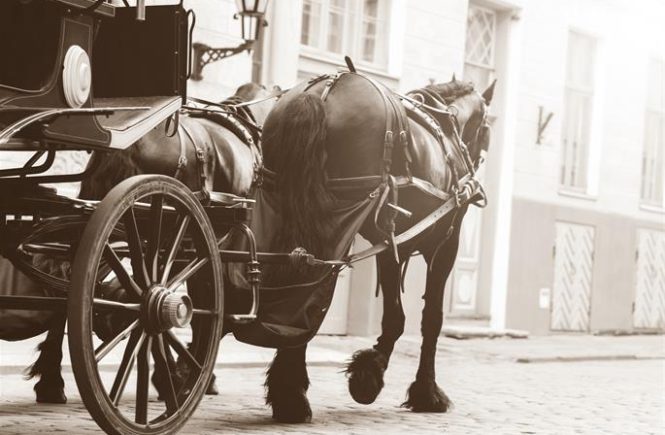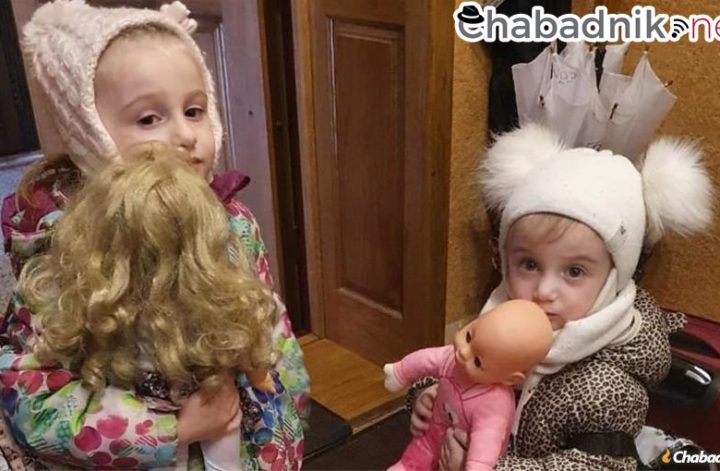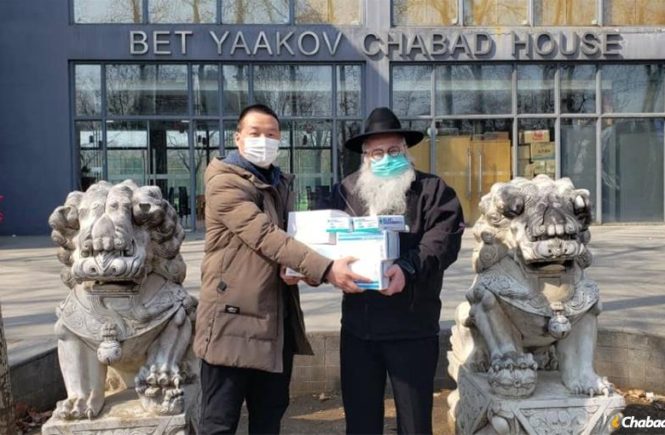In a village deep in Poland, there lived a rabbi who couldn’t remember the last time he was paid. He led a congregation of poor peasants, for whom their rabbi’s salary was their children’s portion of bread, and so, the rabbi and his family lived in poverty themselves, unable to escape the gnawings of hunger. For their part, the congregants naively hoped the rabbi’s faraway, wealthy brother handled the matter for them.
In truth, the rabbi hadn’t much contact with his brother at all, and he couldn’t imagine asking him—or anyone—for help. Finally, tears rolling down her cheeks, the rabbi’s wife approached him and begged him to travel to his brother. “Show some mercy for your family,” she sobbed. The sight of his crying wife and hungry children began to haunt him throughout the day, and difficult as it was, the rabbi swallowed his pride.
He had to do the right thing.
One arm curled around his tallit and tefillin, the rabbi wished his family farewell. He walked over to the front door and placed his hand on the mezuzah, as his wife and children watched silently. The rabbi didn’t move, his brow furrowed in thought. Finally, he lowered his hand, closed the door, and returned to his desk. The sound of his Torah learning soon filled the shocked room.
“Are you regretting your decision to save us from starvation?” the rabbi’s wife asked softly, tears already pooling in her eyes.
The rabbi smiled. “You see, I think it’s ill-advised to journey such a long way for my brother’s help. We’ve fallen out of touch. First of all, my brother might not even be alive; second, perhaps he has nothing to give me; third, G‑d, Master of the Universe, is far more capable of providing—His might knows no limit.”
The rabbi stayed home, learning as he always did. Home as bare as ever, the children’s cries for bread continued to punctuate the small, miserable household and cut through their mother’s heart. She confronted her husband with tears, but he was confident that G‑d would surely provide.
A few days later, an imposing, decorated coach slowed to a stop outside the rabbi’s home. The door opened, and an elegantly dressed gentleman stepped out. He knocked on the rabbi’s front door, and once greeted, asked to speak with the rabbi in private.
“Listen here,” said the visitor, shutting the room’s door and lowering his voice. “I’ve traveled to these parts with the purpose of purchasing fields and vineyards. Now, there’s a lot of money involved, and I don’t like to think about my chances of being robbed. Of course, there’s no one more trustworthy than the town rabbi, and if you could just hold the money here for a few days, I’d be much relieved.”
He tugged an enormous pouch out of his pocket and placed it on the rabbi’s desk with a loud jangle. The rabbi stole a glance downwards—it seemed very full.
“If I don’t return in three days, the money’s yours.”
The visitor thanked the rabbi once more and left. Unsure of where else to put it, the rabbi opened the drawer of his desk and gingerly pushed it deep inside. Later that night, he mentioned to his wife something about a visitor leaving money.
The rabbi hoped the visitor would return for it soon.
Days came and went, followed by weeks and then long months. Passover was approaching. The visitor still hadn’t crossed the rabbi’s front door since that night, and the incident had been long pushed out of the rabbi’s mind by his studies and the worries of his home. His wife had finished cleaning the house, with just the rabbi’s desk remaining. But before she began to empty it, she sighed and expressed to her husband her concerns about their plight once more: “We have no matzahs, no wine, not a single basic necessity for the holiday!”
The rabbi regarded his wife with his usual calm and tried to comfort her as before: “G‑d will surely send us help.” She swallowed hard, keeping her tears to herself. Hoping to distract herself, she turned to clean the last bit of furniture and began to pull out the drawers.
A soft clink from one of them made her stop.
With shaking hands, she pulled out a pouch and looked inside. A yelp of surprise escaped her at the sight of hundreds of gold coins. Breath coming in gasps now, she held the pouch and excitedly ran to show her husband.
“Can I use some of the money here for Passover?” she asked breathlessly.
The rabbi had no idea what his wife was talking about until he glanced at her hands and saw the pouch. He then remembered the strange visitor.
“I’m not sure we’re allowed to take it,” he said slowly. “After all, we hadn’t agreed to anything. It was given to us as a deposit, nothing more.”
“But I remember you saying that the man specifically allowed us to take the money after three days,” countered his wife. “And anyway, we’re talking here about borrowing a nominal amount. That shouldn’t pose a problem.”
Feeling torn between his wife and his reluctance to take money from a stranger, the rabbi decided to visit the Seer of Lublin, who lived not far away. As the rabbi entered the Seer’s study, before he could even say a word about the reason for his visit, the Seer of Lublin greeted him with a wide smile, his eyes twinkling.
“G‑d, Master of the Universe, is indeed more than capable of providing. You’ve merited a great sum effortlessly. Enjoy it without worry, and have yourselves a happy and kosher Pesach!”




